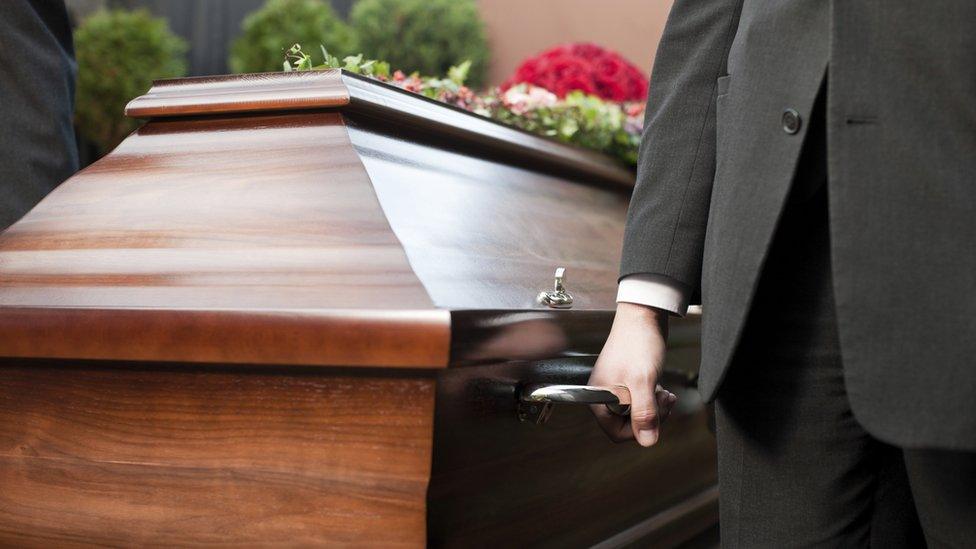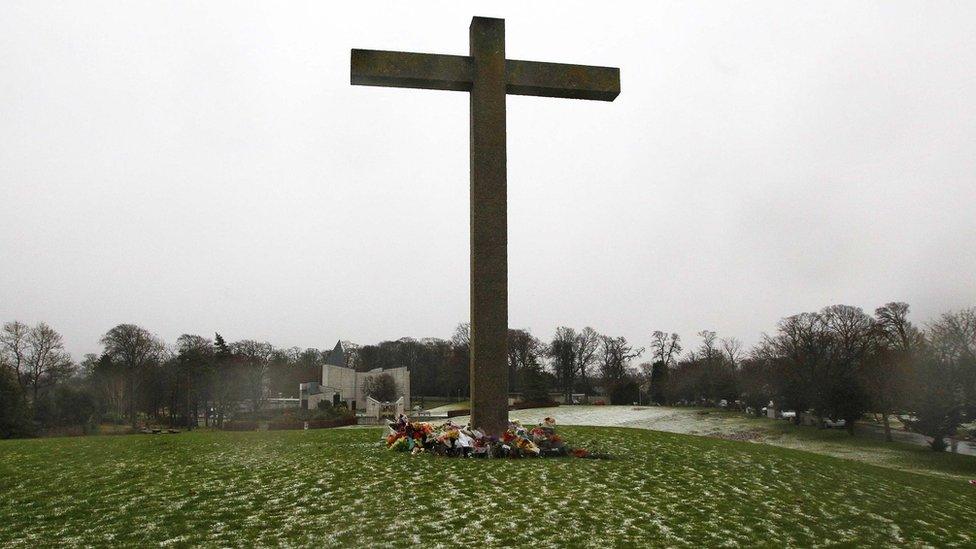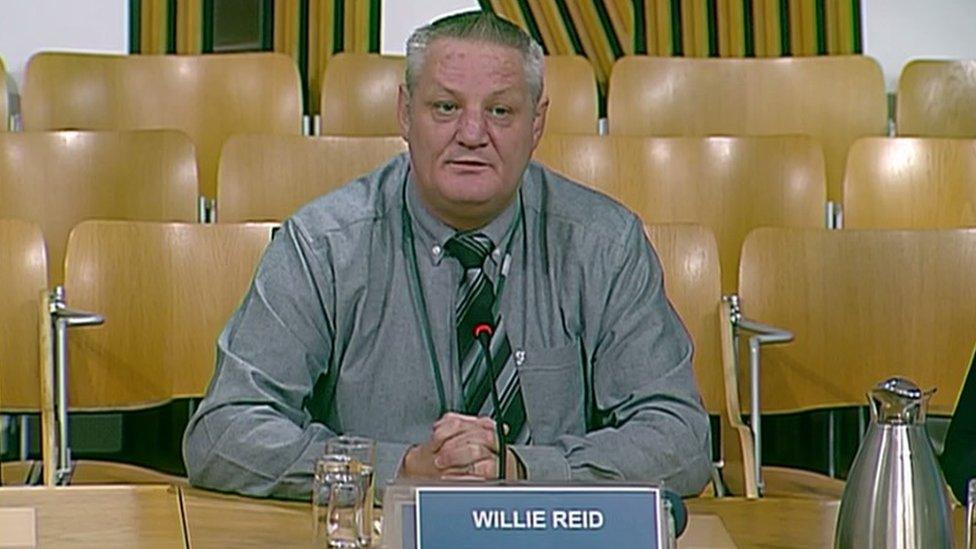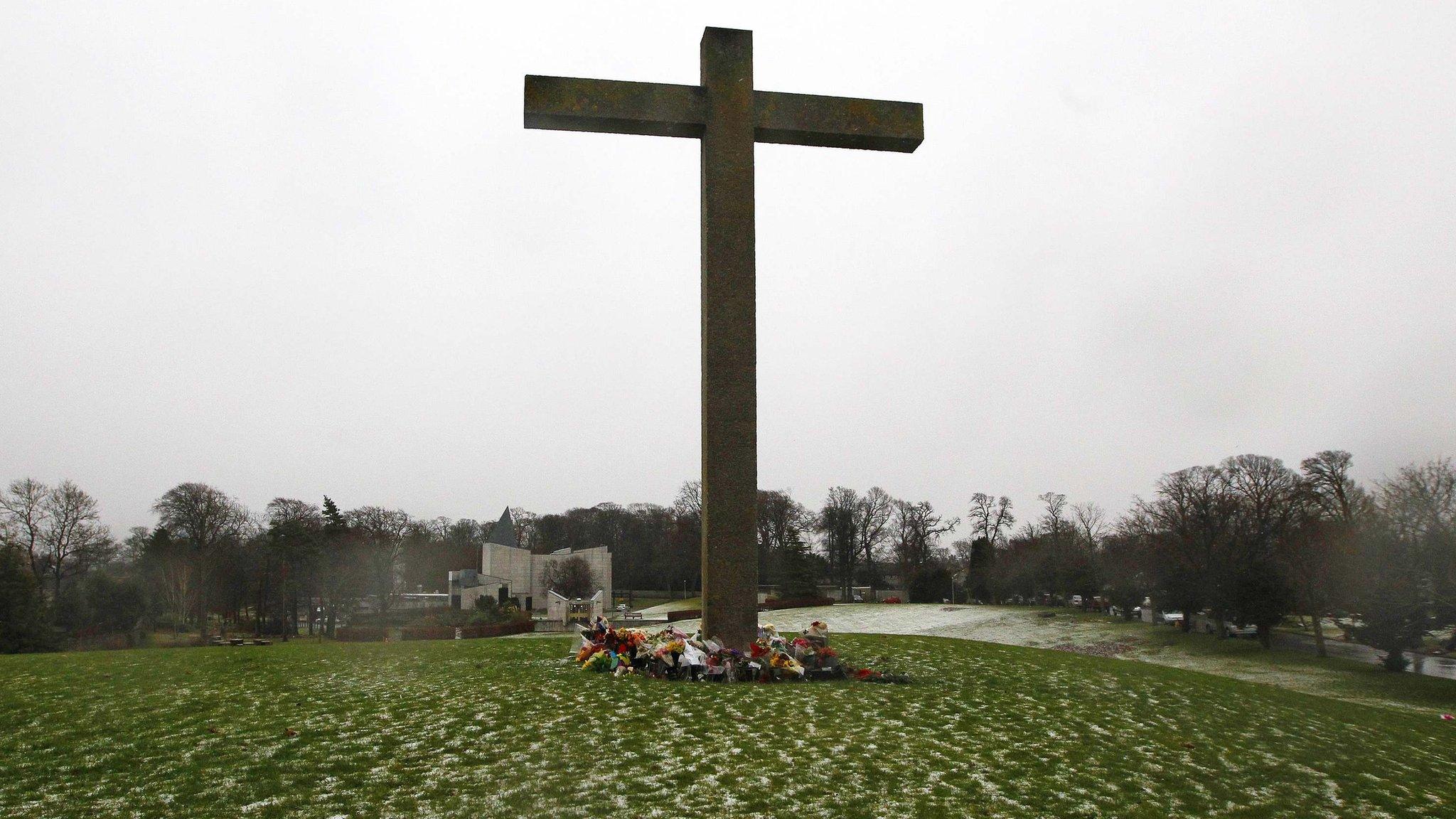MSPs say burial reform bill lacks 'detail and ambition'
- Published

The new bill seeks to regulate burial and cremation services in Scotland
A bill seeking to modernise burial and cremation services in Scotland "lacks detail and ambition", MSPs on the local government committee have said.
New rules to regulate burials and cremations were proposed in the wake of the baby ashes scandal.
The bill would set out a legal definition of ashes and require that authorities retain details of burials.
MSPs said the bill risked being a "missed opportunity" unless a licensing scheme for undertakers was included.
The Burial and Cremation (Scotland) Bill aims to update the existing set of rules over services, which date back over 100 years.
It was introduced following a scandals uncovered in Mortonhall, Edinburgh, as well as Aberdeen, Fife and Glasgow, where babies ashes were disposed of without parents being informed.
Bereaved parents addressed the health committee during scrutiny of the bill, calling for funeral directors to be inspected and held to account by the government.

The new legislation was proposed in the wake of the baby ashes scandal
The report from the Local Government and Regeneration Committee reflected this, saying the bill should be enhanced by adding a licensing scheme "to be implemented without delay".
MSPs also called for the bill to include provisions for burial records to be held electronically, a burial grounds management scheme for local authorities, and changes to the maximum period burial plots can be held for.
Committee convener Kevin Stewart said it was clear the bill in its present form "leaves some questions unanswered".
He said: "This bill was a chance to fundamentally change the way the funeral industry operates and by doing so send a real signal on the issues of service standards and costs.
"It is disappointing the decision to license funeral directors was not taken - something which is surely a missed opportunity - and why we recommend licensing should be implemented without delay."
- Published5 January 2016

- Published9 October 2015
